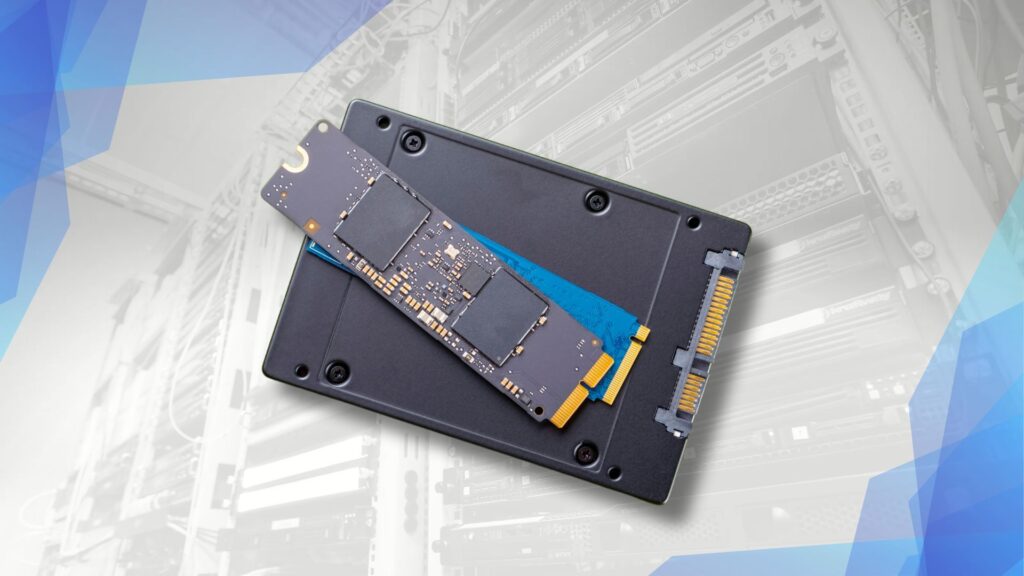As websites and applications become more resource-intensive, the demand for faster and more efficient hosting solutions continues to grow. The storage technology used in a hosting plan plays a critical role in overall site performance, especially as user expectations rise and digital workloads increase.
This article will explore what NVMe hosting is, how it functions within modern server infrastructure, and how it compares to traditional SSD and HDD hosting. It will also cover the different types of hosting that utilize NVMe technology, the performance advantages it delivers, and when it is worth making the switch for better speed, scalability, and reliability.
What is NVMe and Why Does it Matter in Hosting
NVMe stands for Non-Volatile Memory Express. A storage interface that connects solid-state drives (SSDs) directly to a server’s motherboard using the Peripheral Component Interconnect Express (PCIe) bus. This approach allows for much faster data transfer speeds compared to the older SATA interface used by traditional SSD storage and hard disk drives (HDDs).
NVMe SSDs significantly reduce access times and latency by allowing parallel command execution, making them ideal for applications that require rapid data processing. In hosting environments, this translates into more responsive websites and applications, especially under high-traffic conditions.
Unlike traditional storage devices, Non-Volatile Memory Express drives are engineered to handle heavy workloads with minimal delay. They offer faster performance because they use fewer CPU cycles to manage storage, leading to more efficient server resource utilization.

How NVMe Hosting Works in Modern Infrastructure
NVMe hosting integrates NVMe storage technology into various hosting setups, including shared hosting, VPS hosting, and dedicated server hosting. By replacing older SSDs or HDDs with NVMe drives, hosting providers can deliver faster data access and increased customer throughput.
Non-Volatile Memory Express drives also provide benefits in shared hosting environments, but they’re most impactful in VPS hosting and dedicated server hosting. For instance, it enhances a virtual private server’s read/write speeds, improving overall performance for websites hosted on the server. Dedicated server hosting using NVMe ensures that all physical resources, including these drives, are allocated solely to one user, offering unmatched speed and reliability.
Types of Hosting That Use NVMe Technology
Different hosting services now include NVMe as a core component of their infrastructure. NVMe VPS hosting is one of the most popular options, balancing performance and cost. A VPS server with NVMe storage is ideal for medium to large-scale websites that require more resources than shared hosting can provide.
Non-Volatile Memory Express dedicated servers are tailored for high-performance workloads like e-commerce sites, high-traffic applications, and enterprise-level software deployments. These servers ensure dedicated resources and faster data processing, making them a strong fit for businesses that prioritize speed and reliability.
NVMe SSD shared hosting plans are also available. These plans offer an upgrade over traditional SSD hosting, using Non-Volatile Memory Express drives to deliver faster website performance, even within shared environments.
NVMe vs Traditional SSD and HDD Hosting
Traditional SSD hosting, while faster than HDDs, relies on the SATA interface, which limits their data transfer capabilities. HDD hosting, on the other hand, uses spinning disks and mechanical components, making it the slowest and least reliable option.
NVMe hosting uses the PCIe interface, which provides faster data paths directly to the CPU. This results in lower latency, higher input/output operations per second (IOPS), and significantly better performance and reliability. It has faster drives than traditional SSDs by a wide margin and offers superior scalability for growing websites.
The performance difference is especially clear in high-traffic scenarios, where websites hosted on NVMe platforms maintain consistent speed and responsiveness compared to those using traditional storage.
Performance Advantages of NVMe Hosting
One of the most compelling benefits is its ability to enhance overall performance. Fast data transfer and reduced access times ensure that websites and applications load quickly, even during peak traffic periods. NVMe technology supports faster speeds than traditional storage options, which is essential for maintaining strong website performance.
It also improves the hosting environment’s efficiency. With lower latency and better server RAM use, applications requiring heavy data access perform more smoothly. This results in better resource management and a more stable user experience.
It provides high performance across a range of use cases, from small business websites to large-scale platforms with intensive data needs, because it can handle larger workloads with less strain on server hardware.
When to Consider Switching to NVMe Hosting
Businesses and developers using traditional SSD or HDD hosting should consider switching to NVMe hosting if they require better performance, faster load times, or more reliable uptime. Applications experiencing performance bottlenecks, ecommerce platforms with high transaction volumes, and websites seeing increased traffic are all strong candidates for storage upgrades.
Hosting plans powered by NVMe offer better scalability and are ideal for those who anticipate future growth. Whether you’re running a virtual private server or need a dedicated hosting environment, switching to NVMe provides long-term performance benefits that traditional storage simply can’t match.
Driving Better Hosting Performance with NVMe Technology
NVMe hosting represents a significant advancement in web hosting technology. By leveraging the speed and efficiency of its storage, hosting providers can offer fast data access, lower latency, and superior reliability across all types of hosting plans. As more businesses prioritize site speed and performance, NVMe hosting offers a future-proof solution that delivers on both fronts. Whether using shared hosting, a VPS server, or a dedicated server, upgrading to NVMe can substantially improve your website’s performance and reliability in today’s demanding digital environment.


